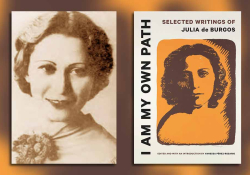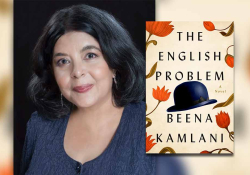On the Imperfections of the Perfect Nanny

I have barely read any critical pieces on Leïla Slimani’s novel Chanson douce (Gallimard, 2016), winner of the prestigious Prix Goncourt in 2016. The best-seller came out just this month in the UK and the US under two distinct titles: Lullaby (Faber, 2018) for the British edition and The Perfect Nanny (Penguin, 2018) for the American one. Inspired by a true story set in New York, the novel sold hundreds of thousands of copies in France in its first year of publication and has already been translated into several languages. This wide commercial success, however, seems to have totally occluded some of the most problematic aspects of the best-seller. One question I have kept on asking myself is why some of the ambiguities and imperfections of the novel have gone unnoticed, if not ignored, by readers and literary critics alike?
One questionable aspect of Slimani’s novel is her tendentious treatment of immigrants and strangers. Paradoxically, the blurb description of the novel mentions the word “race” alongside “power,” “class,” “gender,” and “domesticity” as topics that are “bravely observed” by the author. Even more surprisingly, most reviewers have celebrated the way in which the novel departs from immigration issues and instead offers a broader “post-identitarian” reflection on class and social struggle in contemporary France. Thus, Jennifer Howell writes in the Journal of North African Studies that “while Slimani is of Moroccan origin, neither she nor her publishers have capitalized on her ethnicity,” adding that her treatment of domestic labor in France reflects “a social reality and does not represent an open treatise on immigration.” Similarly, in a no less celebratory review in the New Yorker, American journalist and author Lauren Collins explains that Slimani’s reticence to engage with news in France is also “a pushback against the notion that the Moroccan or the Afghan writer must grapple with political issues while the American or the French one is left to explore the questions of an individual life.”
Slimani, while trying to evade political issues in her exploration of the relationship between a Parisian bourgeois family and their nanny, ends up grappling with politics in an ambiguous if not biased way.
Unlike these hasty statements, it is my contention that Slimani, while trying to evade political issues in her exploration of the relationship between a Parisian bourgeois family and their nanny, ends up grappling with politics in an ambiguous if not biased way. The novel recounts how Louise, the babysitter, comes to kill Adam and Mila, the two young children of Paul Massé, a French music producer, and Myriam Charfa, a lawyer of Maghrebi origin. The narrative opens with the death of the children and goes on to reconstruct the relationship between the babysitter and her employees, inviting the reader to reflect on the potential factors that have led her to commit the crime. Despite this highly original and efficient structure, however, throughout the novel Slimani inexplicably reproduces a series of cheap clichés and narrow representations of strangers.
During their interviewing of candidates for the position of babysitter, Paul and Myriam seem to recycle some of the widespread misrepresentations of difference in contemporary French society. “Not too old, no veils, no smokers,” Paul says to his wife. From the outset, the veil is flagged as a threatening sign that reactivates the heated debates on its status in the French public scene. The figure of the foreign candidate is reduced to the exclusive requirement of being not only available for the job but also discreet if not submissive. As a result, an English-speaking Philippine, an undocumented Ivorian, and a Moroccan with twenty years of babysitting experience are all turned down by the couple for no obvious reason.
One could argue that Slimani is precisely denouncing the treatment of immigrants in France, but her representations remain consistently hazy and double-edged. Malika, the Moroccan candidate, for instance, is laconically described as “a Moroccan woman of a certain age” whom Myriam rejects for fearing “that a tacit complicity and familiarity would grow between her and the nanny” and that “the woman would start speaking to her in Arabic . . . asking her all sorts of favors in the name of their shared language and religion.” Slimani, whom Emmanuel Macron recently appointed as his personal representative for francophone affairs, seems to fuel a negative image of North Africans as a divided community with entrenched attitudes toward language and religion. By the same token, she denies them a well-known sense of solidarity in French exile and sees their division as a matter of fact embedded in social structures.
This problematic aspect becomes more prominent with Slimani’s treatment of Wafa, Louise’s friend and confidante, whom Lauren Collins refers to in passing as only “another nanny.” Conversely, I would argue that Wafa is a key character of the novel as she embodies the reflected image of Slimani’s ambiguous and demeaning representations of the immigrant. The Moroccan nanny Wafa is compared to “a big cat, not too subtle but very resourceful.” She arrived in France “thanks to an old man to whom she used to give massages in a seedy hotel in Casablanca” and to whom she “offered” her body “following both her instinct and her mother’s advice.” Not only is the vibrant city of Casablanca strangely reduced to the image of “a seedy hotel,” but the idea that prostitution is somehow embedded in the collective unconscious and mediated from one generation to another is a typical illustration of Slimani’s problematic discourse.
Wafa’s chaotic trajectory culminates in her imagining that Alphonse, the child she’s looking after, becomes an adult, travels to Morocco, and stays in the same hotel where she used to work, to be eventually “serviced by one of her sisters or her cousins.” The abuse of the Moroccan body is doomed to repeat itself, turning domination into a mere banality reproduced across generations with no possible way out. This is even more surprising giving Slimani’s feminist commitment and recent publication of a nonfictional book about sexuality in Morocco.
Slimani, whom Emmanuel Macron recently appointed as his personal representative for francophone affairs, seems to fuel a negative image of North Africans as a divided community with entrenched attitudes toward language and religion.
Throughout The Perfect Nanny, Slimani’s problematic discourse about the self and the other proves to be more than just an imperfection. It recklessly reinforces the idea that strangers are condemned to submission and exclusion. A relevant example here is provided by the evocative sequence when Louise watches Wafa cooking for her: the French nanny gains temporary access to the status of the bourgeois housewife while her Moroccan colleague remains hopelessly trapped in her social condition. Slimani writes that Wafa “has always admired Louise’s manners, her prim politeness, which could pass for that of a real bourgeois lady.” Their friendship is in fact based on an implicit display of domination and submission reinforced in the narrative. Wafa is the nanny of the nanny, the “other” nanny whose existence and aspirations are defined and driven only by Louise’s destiny.
Another striking example is the “old North African man” who helps Louise carrying the stroller in the stairs of the Paris metro and then inexplicably starts following her and asking intrusive questions. In a gratuitous move, Slimani shifts his image from helpful and polite to badly mannered and indiscreet. For what reason?
Slimani’s novel needs to be read beyond Louise’s sensational crime as a typical case of ambiguity when it comes to depicting strangers and immigrants in commercial fiction. Lydie, the Ivorian leader of the nannies who regularly gather at the park, is introduced as “the self-proclaimed president” who “wears fake-fur coats and has thin red-pencil eyebrows.” The cliché of African nondemocracy is combined here with notions of falsification and deception. When Lydie offers Louise another job, Louise ignores her and reacts in a violent and aggressive way. This unwarranted violence against the foreign body remains indecipherable: does it denounce the hatred of difference or rather reproduce the patterns and behaviors that obliquely and perhaps unconsciously sustain such hatred?
“Post-identitarian” writing does not necessitate the distortion of difference nor the reproduction of cheap and demeaning clichés: it rather requires a much deeper effort to reveal how identity and difference become intermingled in the space of social struggle.
Lauren Collins reports that Slimani “originally conceived of Louise’s character as an African woman but decided to make her ‘a white woman doing an immigrant’s job, which is extremely demeaning’ in order to emphasize her marginality.” Slimani’s constructions are based not only on social separation but also on a strategic racial hierarchy that consequently emphasizes the downgrading of the immigrant.
Slimani and I were both born and raised in Morocco, and we were both educated at French schools, but we certainly don’t share the same view on the role of fiction in negotiating the question of identity and difference in the age of migration and displacement. The Perfect Nanny is a novel that indirectly contributes to the dynamics of exclusion and differentiation: the stranger is the marginalized character of the main narrative, the forgotten subject of distorted representations. If the novel will be widely read as crime fiction or psychological thriller, it still tackles the politics of identity and difference in a reductive, poorly creative, and sometimes unnecessarily violent or ambiguous way.
According to Collins, Slimani responded to an interviewer who asked her why she hadn’t published an autobiographical first novel: “Because I’m North African, and I didn’t want to identify myself uniquely with that. I told myself: You’re going to weave a web in which you’re going to imprison yourself, when you have in front of you a much larger horizon.” By looking away from the complexity of being both French and North African, Slimani seems uninterested in exploring the condition of immigrants, except in a series of scattered and prejudiced statements. “Post-identitarian” writing does not necessitate the distortion of difference nor the reproduction of cheap and demeaning clichés: it rather requires a much deeper effort to reveal how identity and difference become intermingled in the space of social struggle.
I remember that shortly after winning the Goncourt Prize, Slimani declared that Morocco was governed by “medieval laws.” This radical and unbalanced statement reminded me of what Edward Said wrote in 2003, a few months before his death: “The only ‘good’ Arabs are those who appear in the media decrying modern Arab culture and society without reservation.” Slimani’s statement was as much unjustified as unfair. Morocco is not perfect, but the country certainly needs more responsible and engaged contributions from its diaspora. I have always thought that it is much harder to think positively about one’s people and culture: to flag issues and work to deconstruct them, but also to acknowledge successes and build on them.
On the question of identity and difference, Slimani should turn to Abdelkebir Khatibi, probably one of the most productive Moroccan intellectuals, far less celebrated in France. In the conclusion of a book he dedicated in 1987 to figures of the stranger in French literature, Khatibi redefines writing as “an exercise of cosmopolitan alterity.” This is precisely what is lacking in Slimani’s novel: a responsible sense of alterity open to the complex dynamics of being and being-in-the-world.
University of Oxford















